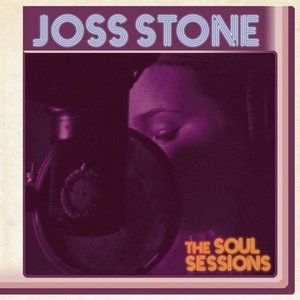
Sam's group christened themselves The Teenage Highway QCs. Anyone who'd seen famous outfits like the Stirrers on the gospel circuit knew how they juggled God-fearing zeal with snappy dressing and ladykiller appeal – hence the eventual secularisation of the quartet style by such R&B vocal groups as Billy Ward And His Dominoes. Singing with a quartet, you had your cake and ate it too. When the Singing Children stopped singing, Sam fell in with a local streetcorner gospel quartet and became their second lead. The thriving gospel scene in Chicago – home to Thomas Dorsey, Mahilia Jackson and the famous Soul Stirrers – was a contagious one. In 1939 his offspring formed their own gospel group, the Singing Children, with Sam restricted to harmonising in a fledgling tenor voice behind teenagers Charles and Mary. It wasn't long before his family followed him, to settle in the inner city of Bronzeville, where he'd already become an assistant pastor. When the Depression wiped out his employers, Charles Cook joined the unending procession of black men heading North to the stockyards of Chicago. Sam would explain to his siblings that he was practising for his future audiences. remembered him singing to a bunch of sticks he'd planted in the ground under an old pecan tree, in the back yard of the family home on Seventh Street. Unsurprisingly, Sam showed musical promise from the earliest age: both the Reverend and Sam's brother L.C.

Probably no-one ever will.īORN IN THE MISSISSIPPI blues hotspot of Clarksdale in 1931, Sam Cooke grew up as the fourth child of Charles and Annie May Cook (Sam added the 'e' years later).Ĭharles Cook worked as a servant in a Victorian mansion belonging to a rich white family, and when he wasn't working for them he was working for the Lord, preaching to local Baptist congregations. No-one has ever quite sung with the verve and panache of Sam Cooke, a man conveying all, as Peter Guralnick wrote, "with a flick of the eyebrow, the tiniest modulation of tone". Perfection is certainly what you hear when you listen to ‘Jesus Wash Away My Troubles’ or ‘Pilgrim Of Sorrow’ or ‘Bring It On Home To Me’ or ‘A Change Is Gonna Come’: two masterpieces from his gospel period and two soul classics from the first half of the '60s. He has control, he could play with his voice like an instrument, his melisma…I mean, nobody else could do it. "When I listen to him, I still can't believe the things he did," said Jerry Wexler, who wanted to sign Cooke to Atlantic Records. At least a part of the tragedy of his death is that he never got to make the music he should have made: caught in the limbo period between '50s R&B and '60s soul, he was constantly obliged to tailor his music to the white pop market he thought he needed to survive. He was the first teen idol the gospel field produced, and he was instrumental in laying the foundation for the gospel-rooted style of R&B that became known as "soul music". Jerry Wexler called him "the best singer who ever lived, no contest". Yet think of Sam Cooke and you think: Grecian good looks, irresistible charm and style, and a voice that rings out like a glorious, golden peal, cooing ‘You Send Me’ down the corridors of eternity.įor the best part of 15 years, Cooke was an archangel, a black American hero. Whatever the doubts and suspicions surrounding the shooting – and there are still many – it is hard to see it as a martyr's death.

Galvao-Sobrinho, University of Wisconsin-Milwaukee, USA 'Reading' the Freed Slave in the Cena Trimalchionis Teresa Ramsby, University of Massachusetts-Amherst, USA Between Fame and Infamia: The Image and Influence of Roman Charioteers Sinclair Bell, Northern Illinois University, USA 'Saintly Souls:' White Teachers' Instruction of Greek and Latin to African American Freedmen Michele Ronnick, Wayne State University, USA Response Eleanor W.FEW ENTERTAINERS have fallen quite so far from grace as Sam Cooke did when he died, 30 years ago, at the Hacienda Motel in south-central Los Angeles. Introduction Teresa Ramsby, University of Massachusetts-Amherst, USA Locating the Grapevine in the Late Republic: Freedom and Communication Pauline Ripat, University of Winnipeg, Canada The Face of the Social Climber: Roman Freedmen and Elite Ideology Babara Borg, University of Exeter, UK The Freedman Economy of Roman Italy Koenraad Verboven, University of Ghent, Belgium ? Deciphering Freedwomen in the Roman Empire Marc Kleijwegt, University of Wisconsin-Madison, USA Feasting the Dead Together: Household Burials and the Social Strategies of Slaves and Freed Persons in the Early Principate Carlos R.


 0 kommentar(er)
0 kommentar(er)
